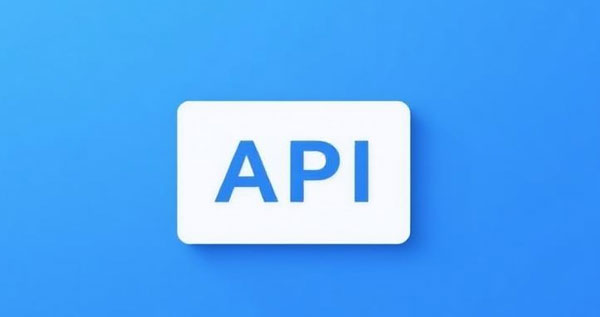A Comprehensive Analysis of Free Proxies vs. Paid Residential Proxies: A Guide from Technology to Application
1. Introduction
In today's data-driven world, proxy services have become indispensable tools for businesses and developers. Whether for market research, web testing, brand protection, or SEO monitoring, proxies help users bypass geographical restrictions, protect privacy, and enhance operational efficiency.
2. Basics of Proxy Technology
Definition of Proxies
A proxy server acts as an intermediary that forwards user requests over the internet. By using a proxy, users can mask their true IP address, bypass geographic restrictions, and facilitate activities such as data scraping and secure web browsing.
Overview of Proxy Types
Common types of proxies include:
HTTP/HTTPS Proxies: Primarily used for web browsing and data transmission.
SOCKS Proxies: Support a broader range of protocols and applications.
Data Center Proxies: Known for their high speed, stability, and cost-effectiveness, making them ideal for streaming, large-scale data scraping, and batch processing.
Residential and Dynamic Residential Proxies: Based on genuine residential IPs, offering high anonymity and compliance—ideal for brand protection, SEO monitoring, and market research.
Luckdata offers a variety of proxy types, including data center proxies, residential proxies, and dynamic residential proxies. Their service is notable for its stability, extensive IP pool (over 120 million residential IPs covering more than 200 locations), and advanced features such as rapid IP rotation and precise geolocation.
3. Free Proxies
Definition and Sources
Free proxies are typically provided by online communities or public resources, allowing users to access them at no cost. However, these proxies often come from unreliable sources, are updated frequently, and offer limited resources.
Main Advantages
Cost-Free: No financial investment is required for basic testing and browsing.
Ease of Access: Numerous free proxy resources are readily available online.
Key Drawbacks and Risks
Instability: Speed and reliability can vary significantly, leading to frequent disconnections.
Security Risks: Free proxies may expose users to privacy breaches and data tampering.
Legal and Compliance Issues: Some free proxies may be involved in illegal activities, so caution is advised.
Suitable Use Cases
Free proxies are best suited for lightweight applications, temporary testing, or personal learning. They are not recommended for enterprise-level or security-critical tasks.
4. Paid Residential Proxies
Definition and Characteristics
Paid residential proxies are based on genuine residential IP addresses, offering superior stability, anonymity, and robust service guarantees. Luckdata's residential proxy service, with over 120 million residential IPs covering more than 200 locations, provides rapid rotation and automatic geolocation, making it the top choice for developers and enterprises.
Main Advantages
High Stability and Reliability: With features like rapid IP rotation, operation response times around 0.6 milliseconds, and 99.99% network uptime, these proxies ensure consistent performance.
Realism and Privacy Protection: Residential proxies mimic ordinary household internet usage, significantly lowering the risk of detection.
Flexible Service Plans: Options are available to suit various needs, such as:
Dynamic Residential Proxies: 5GB per 30 days for $15.
Data Center Proxies: 5GB per 30 days for $12.
Unlimited Dynamic Residential Proxies: $252 per day for unlimited bandwidth and IPs.
Wide Application Scenarios: Ideal for brand protection, SEO monitoring, market research, web testing, stock market analysis, social media marketing, e-commerce, and ad verification.
Technical Implementation Examples
Luckdata provides code samples in multiple programming languages to facilitate integration:
Python:
import requestsproxyip = "http://Account:Password@ahk.luckdata.io:Port"
url = "https://api.ip.cc"
proxies = {'http': proxyip, 'https': proxyip}
data = requests.get(url=url, proxies=proxies)
print(data.text)
Java:
Utilizes OkHttpClient to implement proxy connections with authentication.Shell, Go, and PHP:
These languages also have corresponding code examples, allowing developers to quickly integrate Luckdata proxy services into various environments.
These examples illustrate how Luckdata’s services can be seamlessly integrated across different platforms and programming environments.
5. Comparative Analysis
Performance Comparison
Speed and Stability: Data center proxies generally offer higher speeds and better reliability, making them ideal for streaming and bulk data scraping, while residential proxies are favored for their high anonymity.
Response Time: Paid services like those provided by Luckdata deliver rapid response times (around 0.6 milliseconds) and near-perfect uptime (99.99%).
Security and Privacy
Free Proxies: While cost-free, free proxies carry significant risks of data leaks and potential security breaches.
Paid Residential Proxies: With genuine residential IPs, these proxies offer enhanced privacy protection and compliance, making them well-suited for business-critical applications.
Cost and Control
Free Proxies: Although free, they come with hidden risks regarding stability and security.
Paid Proxies: Though they require a financial investment, paid proxies provide far superior performance, stability, and security. Luckdata offers transparent and flexible pricing plans, enabling users to choose the package that best fits their needs.
Real-World Use Cases
Brand Protection and Ad Verification: Paid residential proxies can hide testers’ real IP addresses and simulate different geographic locations to more accurately monitor market trends and prevent counterfeit products.
Market Research and SEO Monitoring: The global geolocation and rapid rotation features ensure precise data collection, thereby improving the efficiency and accuracy of market research.
6. Recommendations and Considerations
Assessing Your Needs
Evaluate your specific requirements—whether it’s for testing, data scraping, brand protection, or market research—to decide if high stability and anonymity are necessary. For enterprise-level or long-term projects, paid residential proxies are highly recommended.
Evaluating Risks
While free proxies may seem attractive due to zero cost, their instability and security risks are significant. Opting for a paid solution like Luckdata can mitigate these risks by offering robust security measures and compliance guarantees.
Choosing a Service Provider
When selecting a proxy provider, consider:
The quality of technical support and service guarantees.
The coverage of IP resources (e.g., Luckdata covers over 200 regions worldwide).
Transparent and flexible pricing structures.
Balancing Factors
Choosing the right proxy service involves balancing performance, stability, security, and cost. For applications with high reliability requirements, paid services like Luckdata provide a secure and efficient solution, backed by advanced technology and comprehensive support.
7. Conclusion
This article has provided an in-depth analysis of free proxies versus paid residential proxies, highlighting their respective characteristics, use cases, and key differences. While free proxies may be sufficient for temporary or low-risk scenarios, paid residential proxies offer unmatched performance in terms of data security, stability, and compliance. Luckdata stands out as a leading provider by offering a diverse range of proxy types, advanced features, and flexible pricing, making it a reliable choice for both enterprises and developers.
Appendix: Frequently Asked Questions (FAQ)
Q1: What is a proxy service?
A1: A proxy service is an intermediary that forwards internet requests, masking the user’s true IP address and enabling bypass of geographic restrictions, data scraping, and secure browsing.
Q2: What are the main risks associated with free proxies?
A2: Free proxies often suffer from instability, inconsistent speeds, and potential security risks such as data leaks and tampering. They may also pose legal and compliance issues.
Q3: What are residential proxies and why choose paid residential proxies?
A3: Residential proxies use genuine household IP addresses, offering higher anonymity and compliance. Paid residential proxies, such as those provided by Luckdata, ensure robust data security, high stability, and global geolocation features—ideal for brand protection, SEO monitoring, and market research.
Q4: What advantages does Luckdata offer?
A4: Luckdata provides multiple proxy options (data center, residential, and dynamic residential), an extensive IP pool (over 120 million residential IPs), global coverage (over 200 locations), rapid IP rotation with a response time of around 0.6 milliseconds, and a network uptime of 99.99%. They also offer code examples in several programming languages to simplify integration.
Q5: How can I implement Luckdata’s proxy services?
A5: Luckdata offers standard HTTP/HTTPS proxy services along with code samples in Python, Java, Shell, Go, and PHP, making it easy to integrate their proxy services into your applications.
By following this comprehensive guide, readers can make informed decisions on whether to opt for free proxies or invest in paid residential proxies like those offered by Luckdata. For projects requiring long-term stability and robust security, professional proxy services remain the most reliable option.




